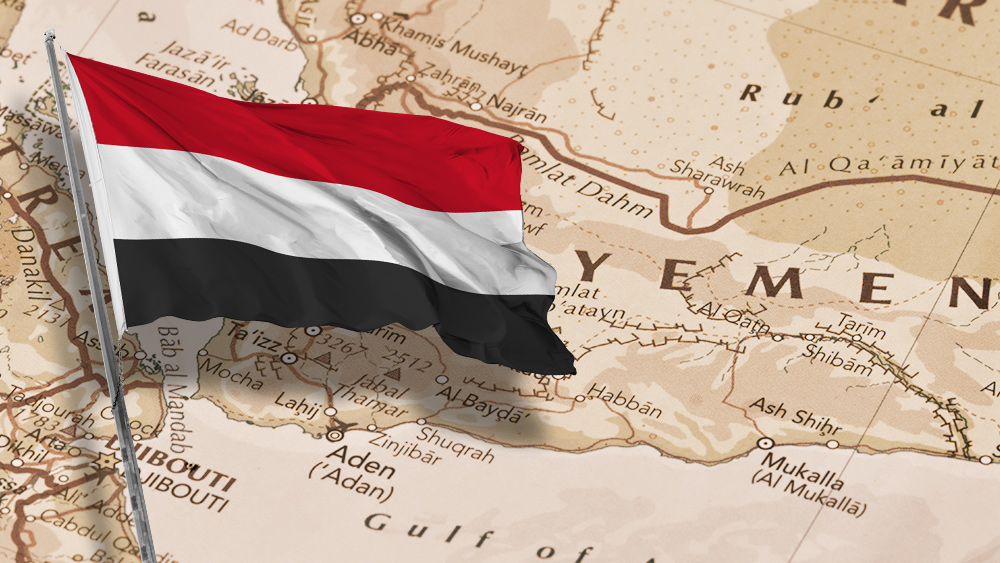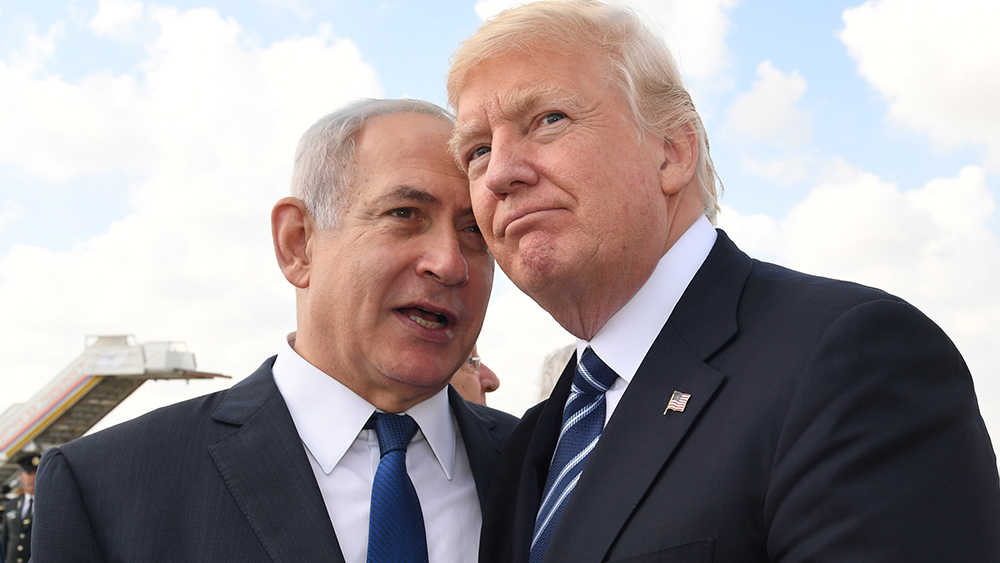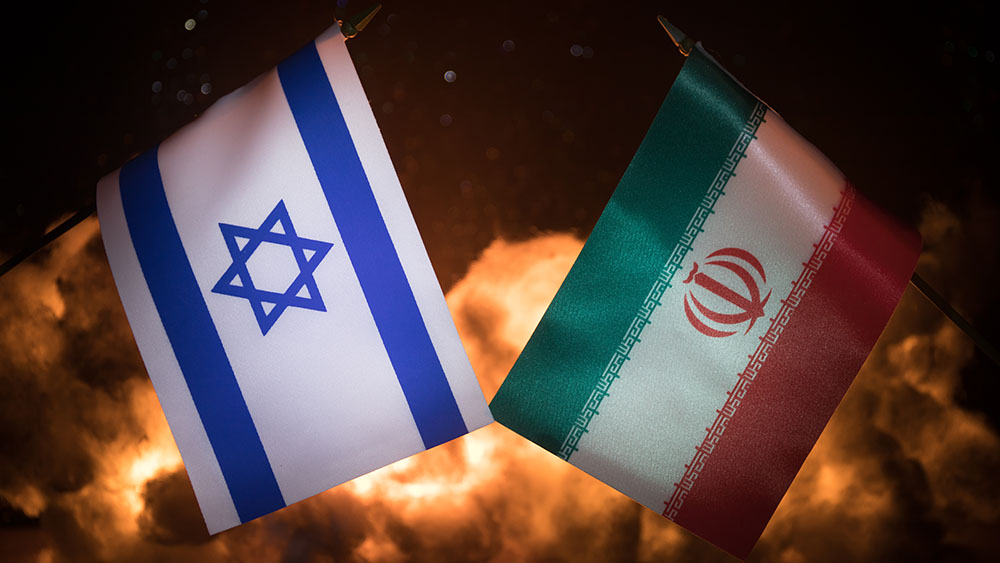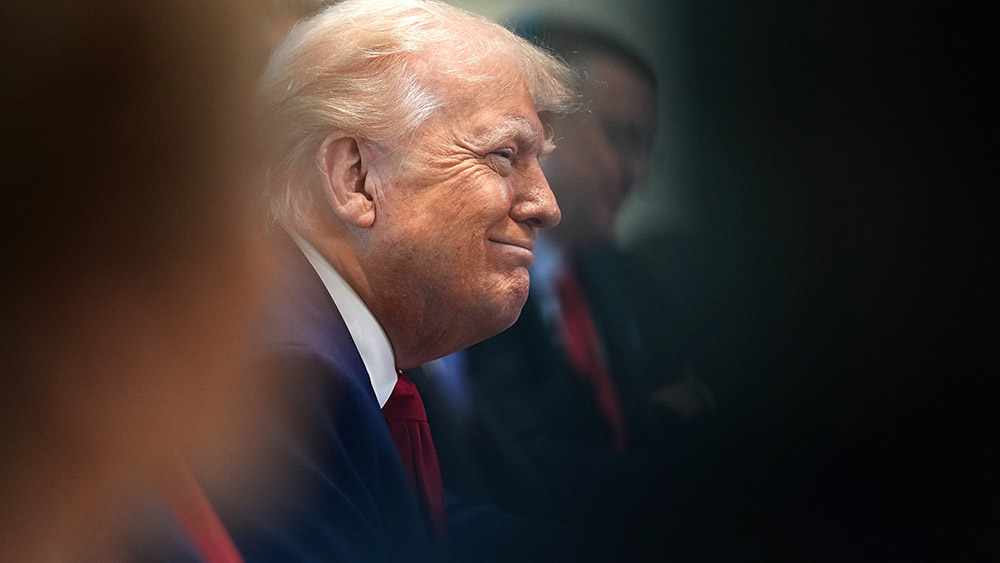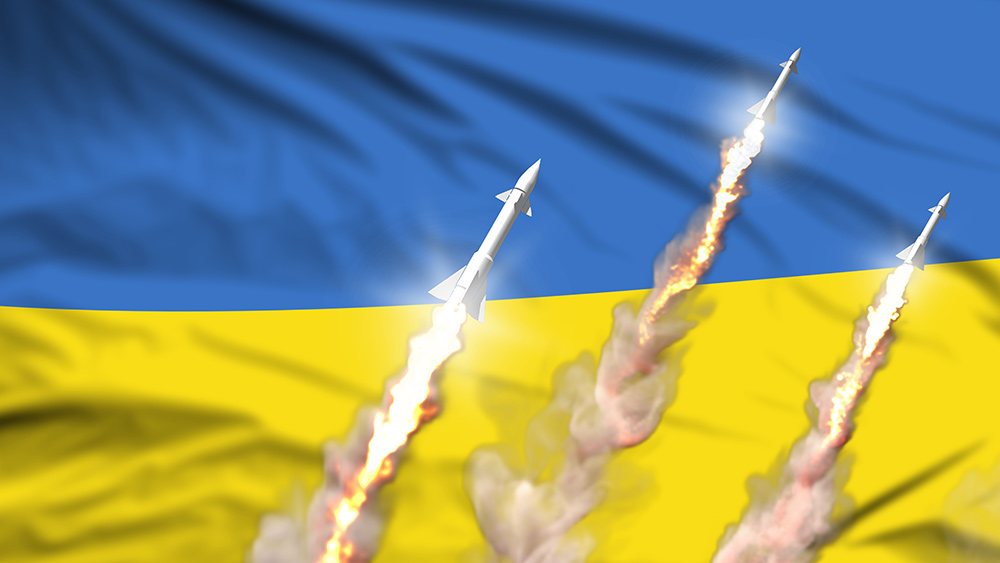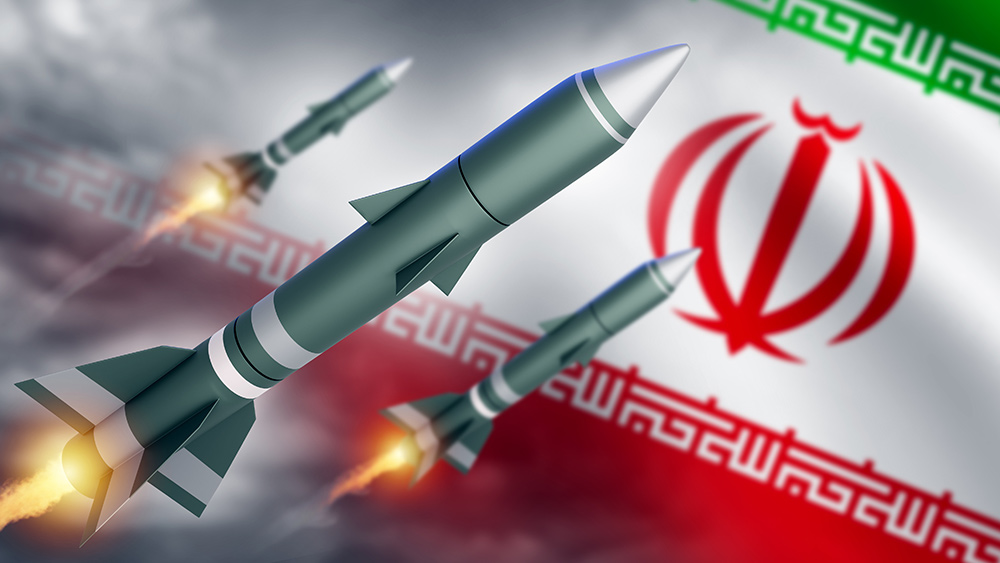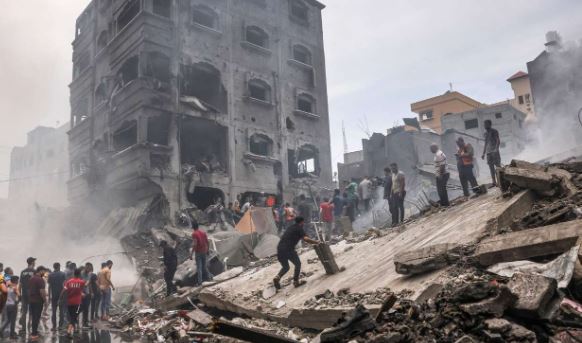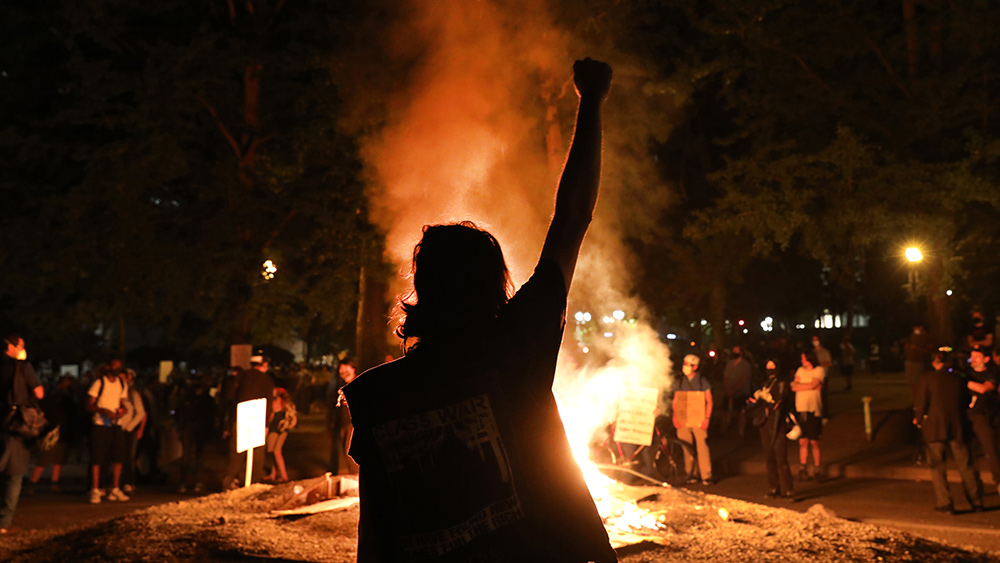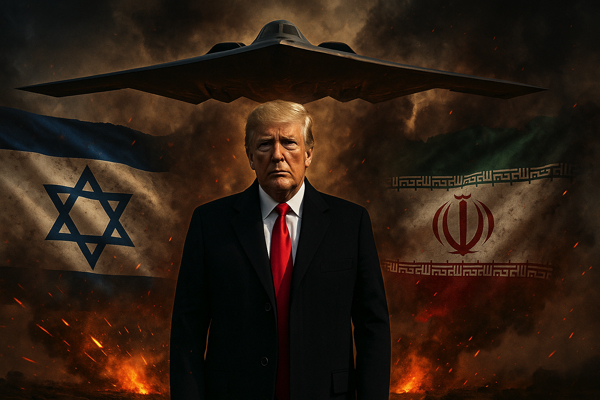Israeli military hits Houthi targets in Yemen, leaving key port city in darkness
07/07/2025 / By Cassie B.
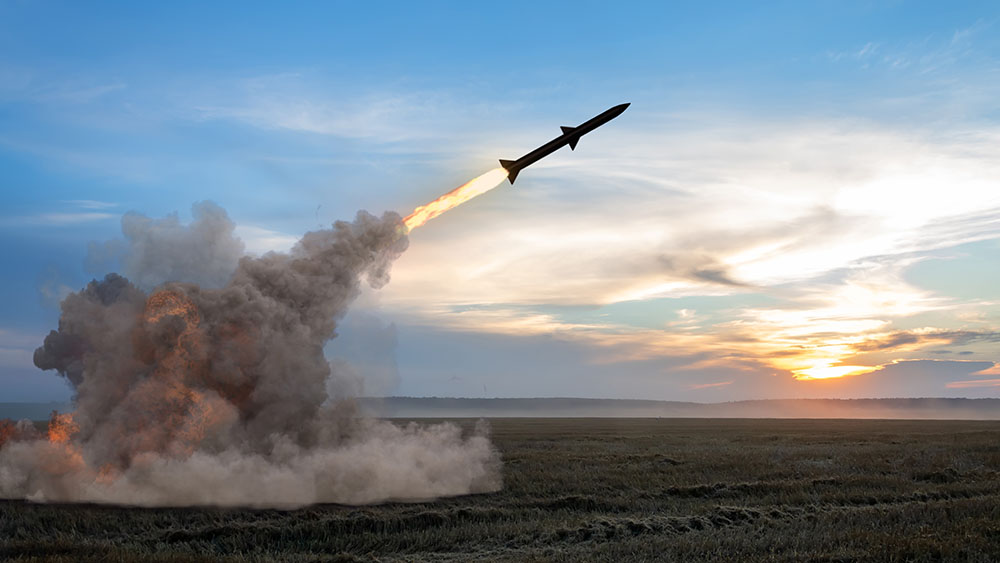
- Israeli forces struck Houthi-controlled ports and a power plant in Yemen, plunging Hodeidah into darkness in response to Houthi drone and missile attacks on Israel.
- Defense Minister Israel Katz labeled the operation “Black Flag,” warning the Houthis would pay a heavy price, but critics fear escalating tensions with Iran and regional instability.
- Among the targets was the seized Galaxy Leader ship, allegedly converted into a spy hub by the Houthis with radar installations to track maritime traffic.
- The attack on critical infrastructure risks worsening Yemen’s humanitarian crisis, with residents reporting blackouts and aid disruptions in an already besieged region.
- Houthi forces retaliated by firing missiles at Israel, raising fears of a broader conflict involving Iran and threatening vital Red Sea trade routes.
Earlier today, Israel launched strikes against Houthi-controlled targets in three Yemeni ports—Hodeidah, Ras Isa, and Salif—as well as a critical power plant, marking its first attack on Yemen in nearly a month. The assault, which came in response to repeated Houthi drone and missile attacks on Israel since October 2023, plunged Hodeidah into darkness after disabling its main power station. Although no immediate casualties were reported, the strikes risk inflaming tensions in a region already standing on the brink of broader conflict.
The Israeli military justified the attack as a response to the Houthis’ persistent aggression, including recent ballistic missile launches targeting Israeli soil. Defense Minister Israel Katz declared the operation—dubbed “Operation Black Flag”—as a warning that the Houthis “will continue to pay a heavy price for their actions.” Yet critics argue that escalating tit-for-tat strikes will only deepen the region’s instability, risking entanglement with Iran and further disrupting global trade routes already imperiled by Houthi maritime attacks.
Among the targets hit was the Galaxy Leader, a cargo ship seized by the Houthis in November 2023. Israel accused the group of converting the vessel into a spy hub, alleging in a statement that “Houthi terrorist regime’s forces installed a radar system on the ship” to track maritime traffic. The strike exemplifies Israel’s long-running campaign to degrade Iranian proxy capabilities, yet it also underscores the West’s failure to contain Yemen’s rebel faction, which has defied global powers despite being initially dismissed as “ragtag mountain fighters in sandals.”
Humanitarian fallout
The attack on Hodeidah’s power station underscores the humanitarian consequences of military escalation in Yemen, where millions rely on imported food and aid funneled through its blockaded ports. Residents confirmed the strikes left the city in darkness in a grim echo of previous Israeli assaults that have disrupted critical infrastructure. Houthi spokesman Mohammed Al Farah condemned the strikes, calling them deliberate attacks on “civilian facilities” meant to “harm civilians” rather than legitimate military targets.
The Houthis, backed by Tehran and positioned as ideological allies of Hamas and Hezbollah, remain defiant. A Houthi military spokesperson claimed their air defenses repelled the Israeli assault using “a large number of domestically produced surface-to-air missiles”—a dubious assertion given the extent of the damage reported. Still, their rhetoric exposes Iran’s expanding influence, raising alarms that any wider Israeli-Houthi conflict could draw Tehran and its proxies into direct confrontation.
Hours after the strikes, Houthi forces retaliated by firing two missiles toward Israel, triggering sirens and interception attempts. Although no casualties resulted, the exchange highlights how quickly skirmishes can spiral. Security analysts warn that continued attacks on Yemen—already devastated by a decade of civil war—risk provoking Houthi reprisals against Red Sea shipping lanes, further destabilizing a chokepoint vital to global commerce.
A tinderbox waiting to ignite
With Israeli Prime Minister Benjamin Netanyahu en route to Washington for talks with President Trump, the strikes signal a hardening stance against Iran’s axis of resistance, but at what cost? Each new flare-up risks entangling Lebanon’s Hezbollah, Iraqi militias, and even Saudi Arabia, which has sought détente with Tehran after years of futile bombing campaigns against the Houthis.
Meanwhile, Yemen’s civilians remain trapped in the crossfire, their infrastructure crippled by airstrikes from multiple actors. The targeting of Hodeidah, a lifeline for food and medicine imports, raises urgent ethical questions about collective punishment in asymmetrical warfare. The absence of reported casualties offers faint reassurance; past attacks have left hundreds wounded, including victims with severe burns from incendiary munitions.
Israel’s latest strikes may satisfy domestic demands for retribution against the Houthis, but they risk igniting a wider conflagration with unpredictable fallout. As both sides trade blows—Israel with precision airstrikes, the Houthis with missile salvos—the Middle East remains a powder keg. Without diplomatic offramps or meaningful de-escalation, each new attack edges the region closer to an all-consuming war that no faction can truly win—and that civilians will inevitably lose.
Sources for this article include:
Submit a correction >>
Tagged Under:
chaos, Houthis, Israel, Red Sea, violence, WWIII, Yemen
This article may contain statements that reflect the opinion of the author
RECENT NEWS & ARTICLES
COPYRIGHT © 2017 VIOLENCE NEWS


